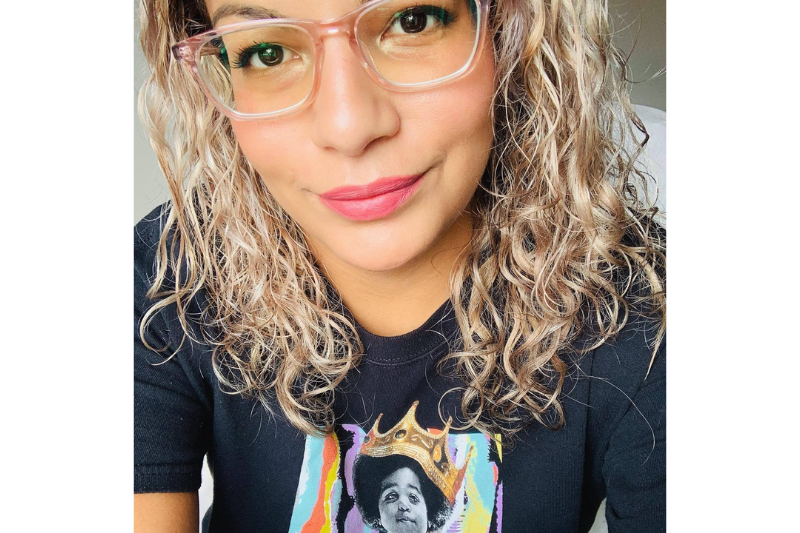2022 Lenten Devotional- Week 7
By Kristellys Maria Estanga, M.A.
We talk about “love” so flippantly in society at large that when we see the word in scripture our understanding of those particular passages becomes cheapened. Likewise, we use the word “resurrection” in our Christian life in a way that rarely gives pause for a deep and uncomfortable dive into its implications for us individually and collectively. And maybe that’s why we don’t: it will never be superficial, and it will never bring the kind of comfort that we have been so accustomed to with John 3:16. All we have to do is believe in the “salvation” that came through the death of the Son of God. Believe that He died for our sins and through that sacrifice we are “saved.” But the death of Christ has absolutely no meaning without the resurrection. And I think it’s the reason why John 3:16 doesn’t stop at the dying part. The dying part was merely the way to eternal life—something that can only happen through resurrection.
There are some beautiful insights author, teacher, feminist, and social activist bell hooks has about how Paul viewed the resurrection of the body: “as a glimpse of hope and possibility.” Paul wrote a letter to the Corinthians to make sure that they would center their faith and subsequent practices in the confident belief in the resurrection. He was writing to a community who was discussing among themselves whether the resurrection really happened and were slipping away from the central focus of the Gospel. It is of ultimate importance to believe and live in the spirit of resurrection. Liberation theologian, Jose Moreno, says that “the negation of the resurrection of the dead is an ideology of the status quo. It’s a silence of the sense of justice. It’s to kill the nerve of the real hope of changing the world.”
If Paul had to remind Corinthians then, having been so close to the actual moment the resurrection took place, and current theologians and prophets have to remind us now, we must accept that our human condition and nature is such that, left to its devices, it will draw us further from a spiritual path centered on the resurrection.
Living out resurrection requires something of us. It’s difficult, against our nature, and against our culture. It’s easy for our focus to slip away from it. It requires a radical renewal of our thought process, of the way we look at ourselves, and others. It requires us to look deeply and honestly inward and humbly outward. bell hooks asks in one of her many talks: “Do we believe in resurrection in our own lives? Do we believe that God can restore all of that is broken within us?” Are we able to reach into those parts we believe are hopeless and too destroyed, give them to God, and believe that God can not just accept us as we are, but love us in such a way that God can repurpose, repair, restore, give new life, resurrect, transform our lives and, in turn, be a transformative influence in our world?
“I think it is healing behavior, to look at something so broken and see the possibility of wholeness in it”, author Adrienne Maree Brown writes. This is what Jesus did over and over and over. hooks points out that when Simon Peter betrays Jesus three times, it is love that reaches out to him in the spirit of resurrection that offers the possibility of reunion. And so we go back to the concept of love. And we can connect it to resurrection and place love as the direct effect of living in the spirit of resurrection and love also as the catalyst for resurrection.
We can only extend love that heals, renews, resurrects if we look inward first to rid ourselves of thought patterns, cultural practices, and societal pressures that are destructive, hateful, and deadly. I don’t imagine Simon Peter expected for Jesus to look at him—something so broken—and see a possibility of wholeness. But that’s exactly what Jesus did. Jesus showed us what a renewed mind living in the spirit of resurrection looked like in practice. It flipped the script every time because it brought life to places where there was believed to be no life, possibility, or hope. So I see a Jesus whose renewed, resurrected mind compelled him to act in love so that through that love others would also be transformed through renewal and resurrection.
This is the radical love Jesus lived out. In the spirit of resurrection. It’s no wonder it was easy for him to say to love your neighbor as yourself—as yourself! And when you learn how to do that, don’t stop there, but also love your enemy. Love? Your enemy? I’m not even sure I know how to love my neighbor as myself. Did Jesus really mean that? I’m still learning how to love myself!
So when I’m asked about how my faith and my values as a Christian leads me to “love my neighbor” in the social and political sense, I have to take a step back and ask myself: wait a minute, am I really loving my neighbor? Am I taking time out of my day to act in love toward those around me even if it takes me away from the comfort of my home, my routine, and security of not being entangled in anyone else’s life? And, with the political work I do, adversaries and “enemies” abound. I cannot say I’ve learned how to love the very real people that are trying to do me and those I love personal and political harm.
Do I really believe that I can be made whole? That the broken parts of me can be repaired? That I can be transformed through resurrection that only love can bring? And that that love has the power to renew the way that I think about myself, others, and the world? Do we believe in liberation for ourselves from the thought patterns and ways of this world so that we may make way for fertile ground to bring about the fruits of love?
Can we preach resurrection when we haven’t figured out how resurrection looks like in our lives? I bring back the question hooks asks: “Do we believe that God can restore all of that which is broken within us?”
You make our collective work possible by your witness for justice every day in your church, community, and Annual Conference. MFSA does not receive any financial support from the United Methodist Church's giving channels. 100% of our budget is funded through your membership dues and your generosity in giving.
Kristellys Maria Estanga, M.A.
Ms. Estanga was born in Venezuela and arrived in the United States at the age of seven. Her experience instilled in her a strong work ethic and principles that have allowed her to be constantly engaged with her community in order to work for the common good and the improvement of people’s quality of life. She has over a decade of experience in advocacy and community organizing around foreign, domestic, and municipal policy issues including education, housing, behavioral health, and criminal justice. She has also worked on numerous issue-based and electoral campaigns in Florida at various levels and several Presidential campaigns. Currently, she serves as Chief of Staff for a City Commissioner in Tallahassee, FL and is developing her independent political consulting business with the mission to help elect people who will push for liberatory agendas for Black & Brown communities.
She earned her Bachelor’s degree at Florida International University, majoring in Psychology and minoring Religious Studies. She graduated from Eastern University with a Master of Arts in Urban Studies and Community Development.

